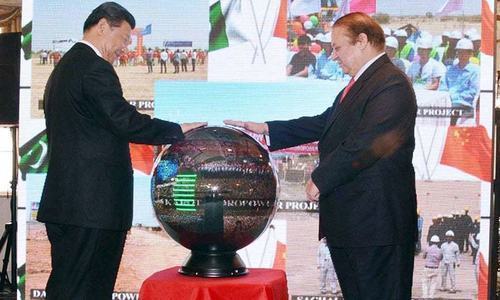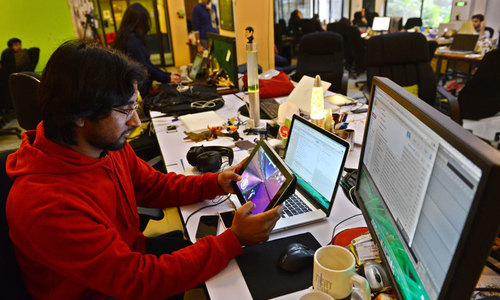WASHINGTON: Pakistan stands to benefit from three tailwinds over the near- to medium-term, with average growth projected at 5.5 per cent over the forecast period, said the World Bank’s Global Economic Prospects report for 2016.
The report identified the ‘tailwinds’ as rising investments from China under the China-Pakistan Economic Corridor (CPEC); the anticipated return of Iran to the international economic community; and persistently low international oil prices.
The report also pointed out that macroeconomic adjustment in Pakistan under an International Monetary Fund programme is progressing, while efforts to crackdown on violent crime in Karachi, the country’s industrial and commercial hub, are supporting investor confidence.
The CPEC agreement, signed in 2015, “has further bolstered investor optimism, and, if implemented, has the potential to lift long-term growth,” the report predicted.
But the World Bank also pointed out that national elections in Pakistan are due in 2018, and warned that “hard won fiscal consolidation gains may be lost if spending ramps up in the pre-election period.”
“In addition, sovereign guarantees associated with the CPEC could pose substantial fiscal risks over the medium term,” the report added.
The report noted that the government of Pakistan usually refers to growth in real GDP “at factor cost” for policy purposes. Real GDP growth at factor cost is projected at 4.5pc in fiscal 2015-16.
The report, which described South Asia as a “bright spot” in next year’s global economic prospects, noted that both India and Pakistan have been on a path of fiscal consolidation over the past three years, and fiscal restraint is curbing demand-side pressures. Lower inflation has enabled central banks in India and Pakistan to cut policy rates to support activity.
The Pakistani currency, which had appreciated in real effective terms since 2013, has stabilised in recent months. The current account deficit has continued to narrow, reflecting lower oil import cost and strong remittance inflows.
The report showed that Pakistan has also made progress in reining in its budget deficit from 8.4pc of GDP in FY13 to 5.3pc in FY15. However, debt levels remain high at 65pc of GDP, the result of years of fiscal slippages, and interest payment costs are about 4.4pc of GDP.
Industrial activity has slowed in Pakistan, while external trade remains weak.
The central bank, with IMF assistance, is gradually strengthening monitoring of financial stability risks, and is in the process of instituting a modern deposit insurance scheme in line with international best practices.
Estimated at around $45bn of investment until 2030, the CPEC initiative will finance a series of transport infrastructure projects. These include $11bn, mostly public investment, in the transport sector, and $33bn in energy projects, also mostly private.
The projects foreseen in the CPEC to receive funding from China also include $4bn Silk Road Fund and partial financing for the $1.65bn Karot hydropower project.
But the report explained that stronger growth and investment in Pakistan “is predicated on reforms to strengthen the business climate, an improvement in the security situation, implementation of the CPEC and an associated easing in energy constraints.”
But the World Bank warns that these “developments might not materialise as expected … risks are mostly of domestic origin and mainly on the downside.”
Published in Dawn, January 8th, 2016

















































